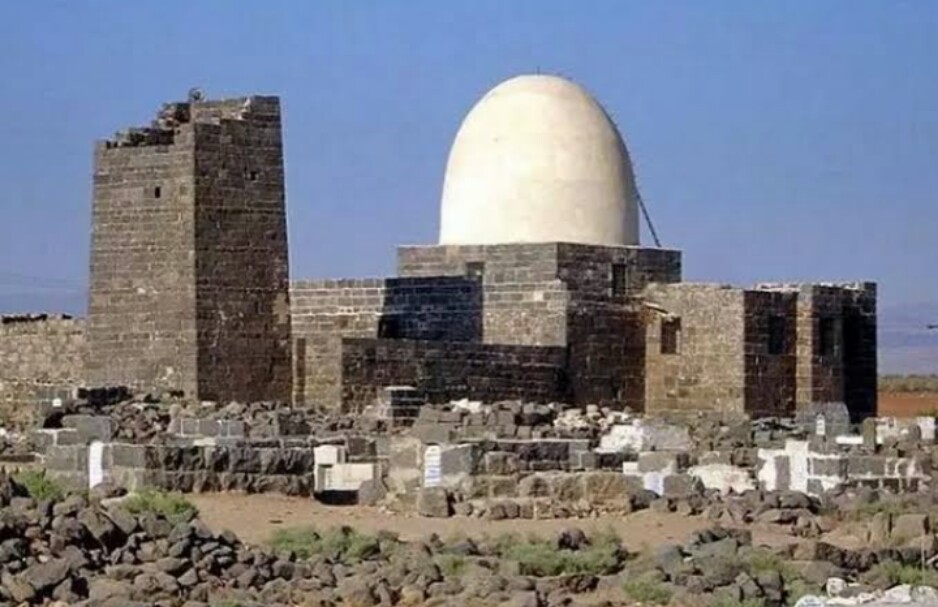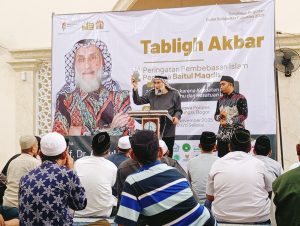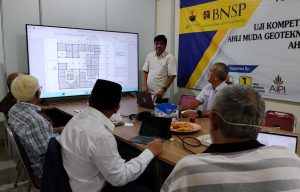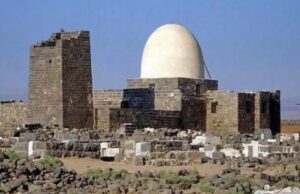By Bahron Ansori, MINA Journalist
Who knows Ibn Kathir. His interpretation, which is known to Muslims as Tafsir Ibn Kathir, has become the main reference. This time we will briefly discuss who is Ibn Kathir whose blessing of knowledge until this century is still the main reference for Muslims from the many references of interpretation?
His full name is Abul Fida’, Imaduddin Ismail bin Umar bin Katsir al-Qurasyi al-Bushrawi ad-Dimasyqi, better known as Ibn Kathir. Born in 701 AH in a village that was part of the city of Basra in the land of Sham.
At the age of 4, his father died so he was raised by his uncle. In 706 H, he moved and settled in the city of Damascus.
Also Read: Be Careful of the Trap of Deploying Peacekeeping Forces to Gaza
Educational background
Ibn Kathir grew up in the city of Damascus. There, he learned a lot from the scholars in the city, one of whom was Shaykh Burhanuddin Ibrahim al-Fazari.
He also learned from Isa bin Mut’im, Ibn Asyakir, Ibn Syairazi, Ishaq bin Yahya bin al-Amidi, Ibn Zarrad, al-Hafizh adz-Dzahabi and Shaykhul Islam Ibn Taimiyah. In addition, he also studied with Shaykh Jamaluddin Yusuf bin Zaki al-Mizzi, one of the hadith experts in Sham. Shaykh al-Mizzi then married Ibn Kathir with his daughter.
Besides Damascus, he also studied in Egypt and received a diploma from the scholars there.
Also Read: The Forty-Four-Days of Glory: Azerbaijan’s Struggle for Justice and Peace
Scientific Achievement
Thanks to his persistence in learning, finally Ibn Kathir became a well-known commentator, hadith expert, historian and great jurist of the 8th century H. His book in the field of interpretation, namely Tafsir al-Qur’an al-‘Azhim became the largest and most authentic book of interpretation to date. This, in addition to the book of commentary Muhammad bin Jarir ath-Tabari.
The scholars say that Ibn Kathir’s interpretation is the best interpretation available today, because it has various features.
The most important feature is interpreting the Qur’an with the Qur’an (verse with another verse), interpreting the Qur’an with as-Sunnah (Hadith), then with the words of the righteous salafush (our pious predecessors, namely the companions, tabi’in and tabi’ut tabi’in), then with the rules of Arabic.
Also Read: Palestine Solidarity Month: A Collective Movement for Al-Aqsa and Palestine’s Freedom
In addition to Tafsir al-Qur’an al-‘Azhim, he also wrote other books of high quality and became a reference for later generations, including al-Bidayah Wa an-Nihayah which contains the stories of the prophets and the previous people, Jami’ Al Masanid which contains a collection of hadith, Ikhtishar ‘Ulum al-Hadith on the science of hadith, Risalah Fi al-Jihad on jihad and much more.
The Testimony of the Scholars
The wisdom and piety of the figure of Ibn Kathir has been recognized by the scholars of his time as well as the scholars after him. Adz-Dzahabi said that Ibn Kathir was a Mufti (giver of fatwas), Muhaddits (experts on hadith), scientists, experts in jurisprudence, commentators and he had many and useful essays.
Al-Hafizh Ibn Hajar al-‘Asqalani said that he was a person who was busy with hadith, studying matan and rijal-rijal (his narrators), his memory was very strong, good at discussing, his life was filled with writing books, and after the death of humans still able to take a lot of benefit from his works.
Also Read: Hassan al-Turabi: A Controversial Thinker from Sudan
One of his students, Syihabuddin bin Hajji said, “He is the strongest person in memorization that I have ever met regarding the content of hadith, and knows best the defects of the hadith and the condition of the narrators. His friends and teachers also admit it. When I associate with him, I always benefit from him.
His death
Ibn Kathir died in 774 H in Damascus and was buried next to the grave of his teacher, Shaykhul Islam Ibn Taimiyah.(T/RE1)
(Source: Tafsir Ibn Kathir)
Also Read: Who Exactly is the RSF Group Shaking Sudan?
Mi’raj News Agency (MINA)































 Mina Indonesia
Mina Indonesia Mina Arabic
Mina Arabic